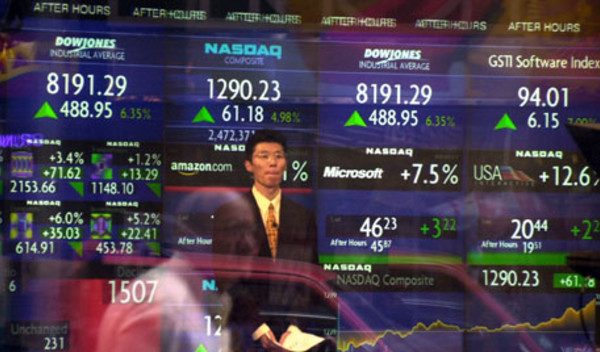

The Financial Conduct Authority has handed Deutsche Bank a £227m fine, its largest ever for misconduct relating to lending rate manipulation, after the firm misled the regulator which could have hampered its investigation.
Between January 2005 and December 2010, trading desks at Deutsche Bank manipulated its submissions used to establish the European interbank lending rate across all major currencies.
Both Euribor, previously known as Ibor, and the London interbank rate (Libor) are based on daily estimates of the submissions at which banks on a panel can borrow funds in the market.
They are fundamental to the operation of both UK and international financial markets and are the basis for a number of contracts and financial products, including markets in interest rate derivatives contracts.
The misconduct involved at least 29 Deutsche Bank individuals, including managers, traders and submitters, primarily based in London, but also in Frankfurt, Tokyo and New York, the regulator said.
The FCA worked closely with other regulators in the United States on this case and its action comes as part of a £1.7bn cross-Atlantic package of enforcement.
The Commodities Futures Trading Commission imposed a financial penalty of $800m (£532m), while the US Department of Justice imposed a penalty of $775m (£515m) and the New York Department of Financial Services imposed a fine of $600m (£399m).
Georgina Philippou, acting director of enforcement and market oversight at the FCA, said that the case stands out for the seriousness and duration of the breaches by Deutsche Bank.
“One division had a culture of generating profits without proper regard to the integrity of the market. This wasn’t limited to a few individuals but, on certain desks, it appeared deeply ingrained.”
She added that the bank’s failings were compounded by them repeatedly misleading the regulator, adding that they took far too long to produce vital documents and it moved far too slowly to fix relevant systems and controls.
Traders at Deutsche Bank used a three pronged approach to attempt to maximise the impact on Euribor. These were:
• to influence the bank’s submitters;
• to collude with other banks that sat on the panel; and
• to offer or bid cash to create the impression of a change in the supply of funding.
Deutsche Bank did not have any systems and controls specific to rates submissions and did not put them in place, even after being put on notice that there was a risk of misconduct. It also had defective systems to support the audit and investigation of misconduct.
As a result, the bank took over two years to identify and produce all relevant audio recordings requested. It gave the FCA misleading information about its ability to provide a report commissioned by the German regulator, BaFin, claiming it was prevented from sharing the document.
Deutsche Bank settled at an early stage of the investigation, qualifying for a 30 per cent discount on its fine. Without the discount, the fine would have been £324m.
peter.walker@ft.com



